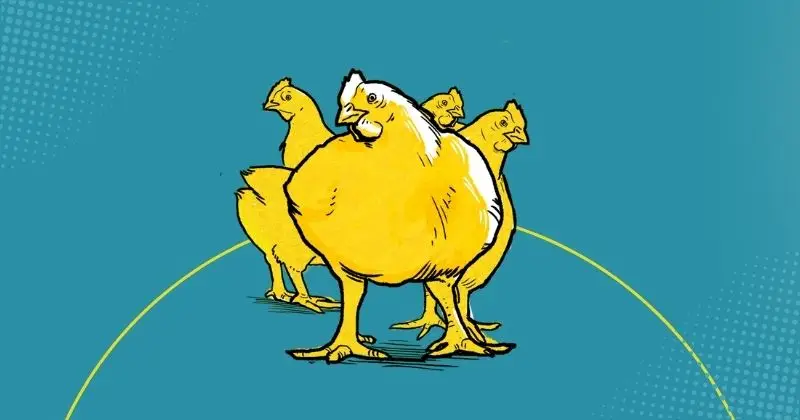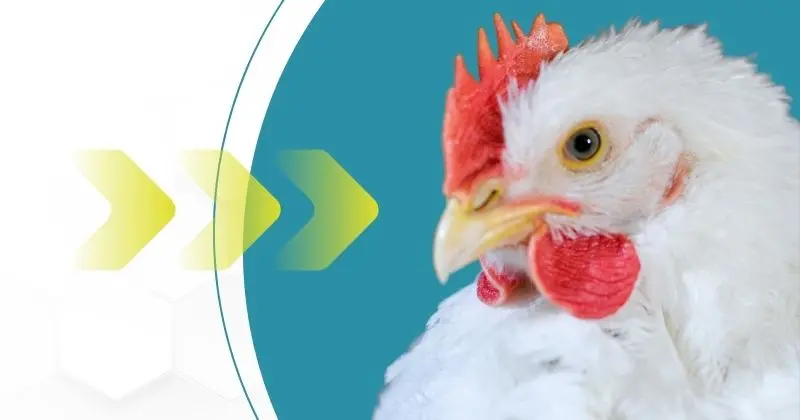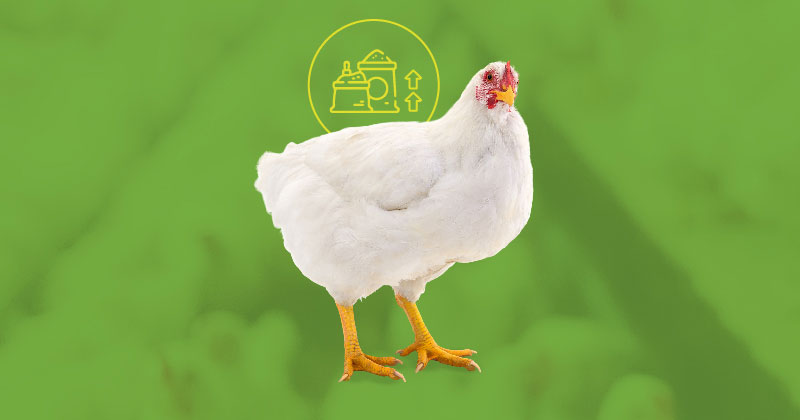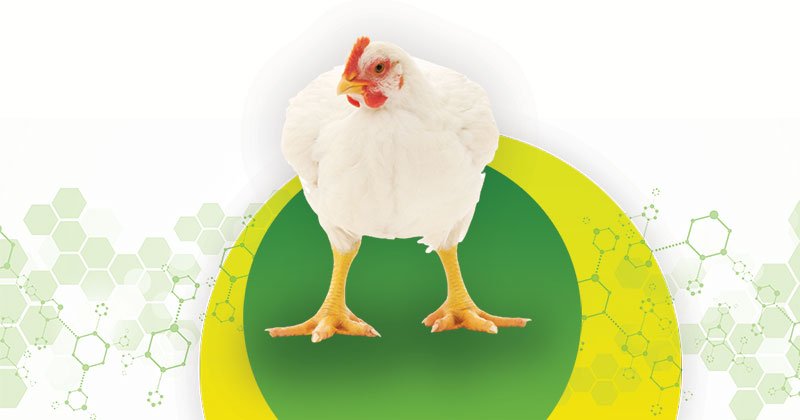
3 points to consider when choosing a probiotic for poultry
09/06/2021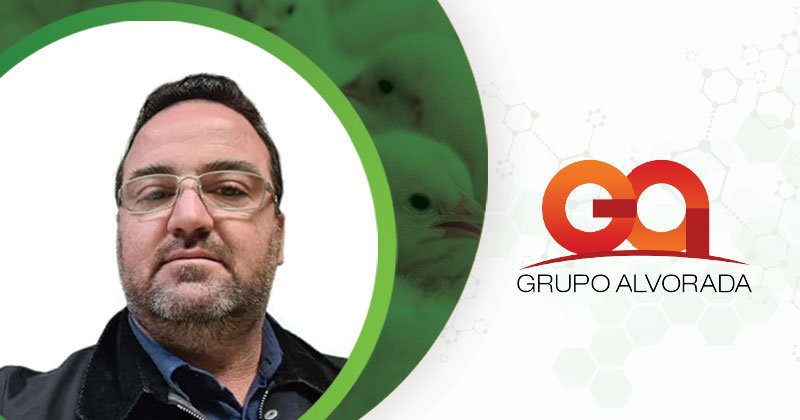
Grupo Alvorada has Biocamp’s probiotic program
11/07/2021Diseases of the respiratory system are quite common in poultry due to the ease of propagation of etiological agents by the breeding stock. However, in winter the scenario is even more worrisome. That is because birds are exposed to a large temperature range — cold nights and early mornings, with hot days — and can have their immunity system compromised.
As respiratory problems are usually syndromes, with more than one etiological agent involved, a chronic infectious process is installed in the flocks of poultry on the farm. It results in fairly significant economic losses.
One of the alternatives to combat these rapidly proliferating agents is immunization programs to control respiratory diseases — combined with biosecurity measures. Here, autogenous vaccines are highlighted, as they are important tools in this process. In this article, Biocamp’s Business Manager, Nelson Haga, explains what they are, what differentiates them from commercial vaccines, who to count on for their production and how to use them.
What are autogenous vaccines?
Autogenous vaccines — also known as autologous or autovaccines — are customized products. This means that they are produced to meet specific disease prevention needs on the farm (Taylor made), prepared with the same agent that is infecting the poultry on the farms.
This bacterial or viral agent is isolated, identified, replicated, and inactivated by appropriate products and techniques and then applied to the animal or flock.
Therefore, the vaccine acts as a therapeutic measure for the affected animals. It fosters immunity and protection of the flock from future contacts with the same agent.
When to use autogenous vaccines?
Nelson Haga explains that autogenous vaccines are indicated when commercial line vaccines do not provide adequate protection to birds. That is, when the disease is already present in the poultry flock.
Autogenous vaccines come in to control the outbreak of the disease and provides immunity in flocks that are housed on the same farm. It is mainly an economic measure, because it reduces the use of drugs without satisfactory efficacy and reduces production losses and animal mortality.
Differences between line vaccines and autogenous vaccines
Both autogenous and commercial line vaccines are produced for the same purpose. The biggest difference is in the agents used as antigens.
Whereas commercial vaccines use standard strains, for prevention in large regions, autogenous vaccines use autologous strains — that is, the same agent that is causing the infectious disease on the farm.
“For bacterial vaccines, in which the serotype variability is very large, the use of the correct strain is very important for the control and prevention of the disease”, Nelson explains. Therefore, they are complementary.
Who can produce autogenous vaccines?
The production of autogenous vaccines is regulated by the Ministry of Agriculture, Livestock and Supply (MAPA). That is, an authorization from MAPA is required for the development of the vaccine, as well as following the steps for manufacturing described in Normative Instruction 31, of 2003. There are 5 steps that may not be disregarded or suppressed.
The 5 Steps to Making an Autogenous Vaccine
1. Sample collection and laboratory diagnosis
The collection of material on the property must be carried out by a veterinarian, who sends the sample to an animal pathology laboratory to isolate and diagnose the etiological agents.
Subsequently, the isolated agents are sent to the laboratory authorized to manufacture autogenous vaccines, which must issue a receipt for the sample and the diagnostic report.
2. Production
Before starting the production of autogenous vaccine, the manufacturer must notify the Ministry of Agriculture, Livestock and Supply (MAPA) and send a series of documents: laboratory report that identified the antigen (seed), information on the target farm and adjacent farms that may use the vaccine, data on species and numbers of birds to be vaccinated etc.
3. Quality control
All inputs, seeds, processes, and products must be analyzed. Vaccines must be tested for proof of purity, sterility, inactivation, and safety.
4. Expiry date and conservation
The expiry date of the autogenous vaccine is a maximum of 6 months and must be stored at 2 to 8°C. The expiry date of the master seed is 15 months. If it exceeds 15 months (limit recommended by the Ministry), it is necessary to isolate the farm agent again.
5. Commercialization of the vaccine
Products that meet the quality control can be sold. The label must contain the information that it is an autogenous vaccine, the commercial name of the vaccine and the location of the farm (target and adjacent) for which it is intended.
Due to these steps required by MAPA, the development of a vaccine may not be done in a few days — it takes about two months until the efficacy, safety and sterility tests are completed for commercialization.
How to evaluate an autogenous vaccine
As the vaccine is autogenous and customized according to the needs of the poultry farm, it is possible to associate two or more etiological agents in the same product. The important thing is to have a company that has expertise in production and that meets all the regulatory steps required by the Ministry of Agriculture, Livestock and Supply.
This is the case of AUTO-VAC® (AutoVac® Pasteurella), an inactivated oily autogenous vaccine against pasteurellosis, developed by Biocamp and authorized for use by MAPA. It is indicated for the prophylaxis of infections caused by Pasteurella multocida isolated in birds of a certain poultry farm.
To fight and prevent avian respiratory diseases on your poultry farm, check which is the best vaccination program and the need to include autogenous vaccines.


